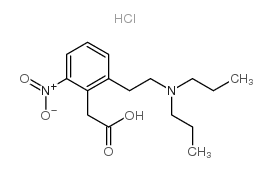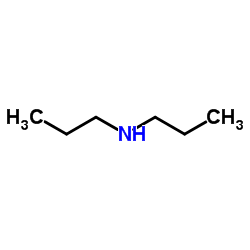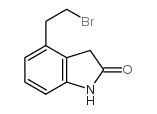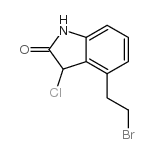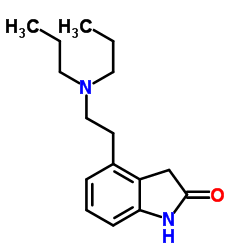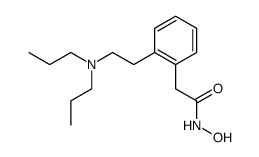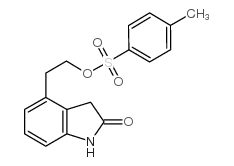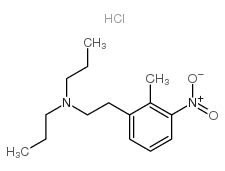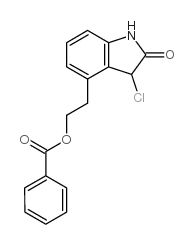91374-20-8
| Name | 4-(2-(Dipropylamino)ethyl)indolin-2-one hydrochloride |
|---|---|
| Synonyms |
2H-Indol-2-one, 4-[2-(dipropylamino)ethyl]-1,3-dihydro-, hydrochloride (1:1)
4-[2-(Dipropylamino)ethyl]-1,3-dihydro-2H-indol-2-one hydrochloride 4-[2-(Dipropylamino)ethyl]-1,3-dihydro-2H-indol-2-one hydrochloride (1:1) 4-[2-(Dipropylamino)ethyl]-1,3-dihydro-2H-indol-2-onhydrochlorid UNII-D7ZD41RZI9 ropinirole hcl 4-[2-(dipropylamino)éthyl]-1,3-dihydro-2H-indol-2-one chlorhydrate Adartrel MFCD01754173 Ropinirole hydrochloride 2H-indol-2-one, 4-[2-(dipropylamino)ethyl]-1,3-dihydro-, monohydrochloride Requip Ropinirole (hydrochloride) |
| Description | Ropinirole hydrochloride(SKF101468 hydrochloride) a selective dopamine D2 receptor inhibitor with IC50 of 29 nM.Target: Dopamine D2 ReceptorRopinirole (50 mg/kg, i.p.) causes biphasic spontaneous locomotor activity in mice. Ropinirole (0.05-1.0 mg/kg SC) dose-dependently inhibits the dyskinesias induced by 2-di-n-propylamino-5,6-di-hydroxytetralin in mice. Ropirtirole, at doses of 1 and 10 μg, injected unilaterally directly into the striatum of the rat causes marked, contralateral (away from the side of injection) asymmetry and circling in mice. Ropinirole (0.05-1.0 mg/kg SC or 0.1 mg/kg PO) reverses all motor and behavioural deficits induced by MPTP in marmosets [1]. Ropinirole (2 mg/kg, i.p.) for 7 days increases GSH, catalase and SOD activities in the striatum and protected striatal dopaminergic neurons against 6-hydroxydopamine (6-OHDA) in mice [2]. Ropinirole (0.2 mg/kg, i.p.) improves the use of previously akinetic forelimb and produced robust circling behavior in lesioned rats with striatal over-expression of both D2R and D3R compared to lesioned animals that received blank vector. The subtherapeutic dose of ropinirole generates only modest motor effects in lesioned rats with sole over-expression of D2R or D3R [3]. Ropinirole (1-8 mg t.i.d.) is rapidly and completely absorbed with oral bioavailability of 55%, clearance of 780 mL/min, elimination half-life of 6 hours in healthy volunteer. Since the major route of elimination for Ropinirole is by the CYP enzyme system, mainly by CYP1A2 and also by CYP3A4, inhibition of the former and possibly the latter may reduce the agent's clearance and lead to drug accumulation [4]. |
|---|---|
| Related Catalog | |
| References |
| Boiling Point | 410.5ºC at 760mmHg |
|---|---|
| Melting Point | 241-243ºC |
| Molecular Formula | C16H25ClN2O |
| Molecular Weight | 296.836 |
| Exact Mass | 296.165527 |
| PSA | 32.34000 |
| LogP | 3.78570 |
| Storage condition | Room temp |
CHEMICAL IDENTIFICATION
HEALTH HAZARD DATAACUTE TOXICITY DATA
|
| Symbol |
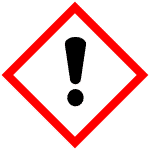

GHS07, GHS09 |
|---|---|
| Signal Word | Warning |
| Hazard Statements | H302-H400 |
| Precautionary Statements | P301 + P312 + P330 |
| Personal Protective Equipment | dust mask type N95 (US);Eyeshields;Faceshields;Gloves |
| Hazard Codes | Xn,N |
| Risk Phrases | R22 |
| Safety Phrases | 36-60-61-37/39-26 |
| RIDADR | UN 3077 9/PG 3 |
| RTECS | NM3288250 |
| Hazard Class | 9.0 |
| HS Code | 2933790090 |
|
~89% 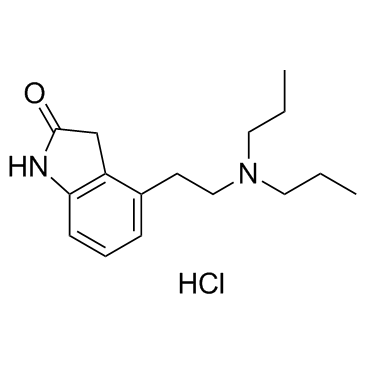
91374-20-8 |
| Literature: IND-SWIFT LABORATORIES LIMITED Patent: WO2008/84499 A1, 2008 ; Location in patent: Page/Page column 8 ; |
|
~50% 
91374-20-8 |
| Literature: TORRENT PHARMACEUTICALS LTD Patent: WO2005/80333 A1, 2005 ; Location in patent: Page/Page column 23 ; |
|
~% 
91374-20-8 |
| Literature: WO2011/30330 A2, ; Page/Page column 9 ; |
|
~% 
91374-20-8 |
| Literature: WO2005/40115 A1, ; Page/Page column 6 ; |
|
~40% 
91374-20-8 |
| Literature: Helm AG; CF Pharma Gyogyszergyarto Kft. Patent: EP1568689 A1, 2005 ; Location in patent: Page/Page column 7 ; |
|
~85% 
91374-20-8 |
| Literature: Hayler, John D.; Howie, Simon L. B.; Giles, Robert G.; Negus, Alan; Oxley, Paul W.; Walsgrove, Timothy C.; Whiter Organic Process Research and Development, 1998 , vol. 2, # 1 p. 3 - 9 |
|
~% 
91374-20-8 |
| Literature: WO2011/72704 A1, ; |
|
~% 
91374-20-8 |
| Literature: Organic Process Research and Development, , vol. 2, # 1 p. 3 - 9 |
|
~% 
91374-20-8 |
| Literature: Organic Process Research and Development, , vol. 2, # 1 p. 3 - 9 |
| Precursor 10 | |
|---|---|
| DownStream 1 | |
| HS Code | 2933790090 |
|---|---|
| Summary | 2933790090. other lactams. VAT:17.0%. Tax rebate rate:9.0%. . MFN tariff:9.0%. General tariff:20.0% |
